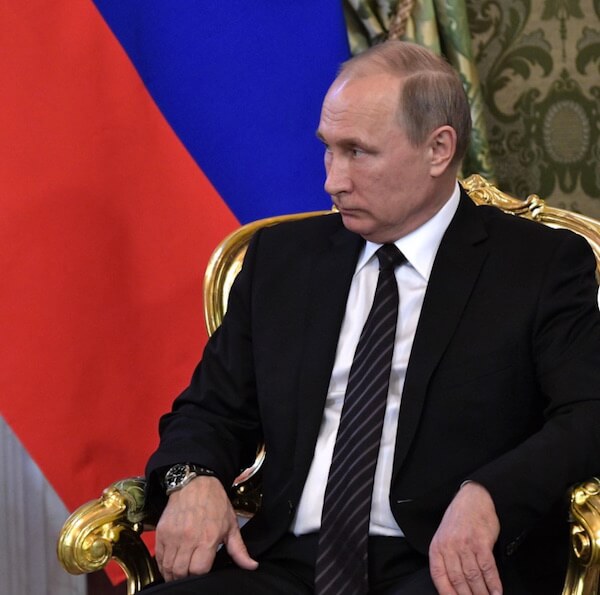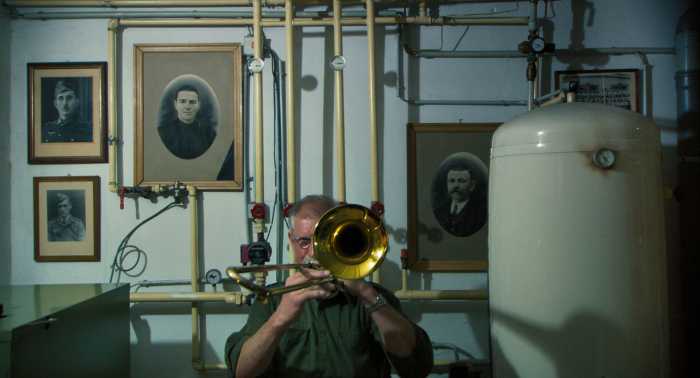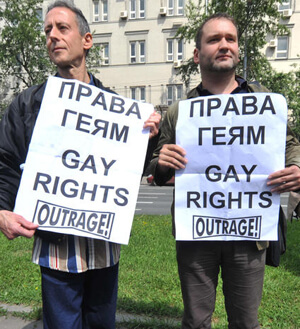December brought a burst of activity on the marriage equality front, adding some new countries to the list of those that either now or soon will provide full rights to same-sex couples, but also possibly removing one nation from the list.
The Constitutional Court of Austria made the first move on December 4, ruling that the rights afforded to registered partners (same-sex) and married spouses (different-sex) had progressed so close to equality that any justification for maintaining separate systems must yield to the principle of equality under the law. Austria had established a registered partnership system that went into effect in 2010, open only to same-sex couples. Since then, amendments had moved those partnerships ever closer to marriage in terms of legal rights, the most recent change allowing same-sex couples to jointly adopt children and recognizing the parental status of both partners.
Several cases were pending in the Austrian courts raising the argument that the constitution’s equality guarantees mandated equalizing the two institutions — marriage and registered partnerships. The court bowed to this logic, ordering that the government take the necessary steps to allow same-sex couples to marry and to allow different-sex couples to enter into registered partnerships. If the government does not act by December 31, 2018, the new legal regime will go into effect by judicial order the following day.
Wins in Austria, Australia; half measure for Italy; Bermuda’s looming backslide
At least one news source reported that the handful of same-sex couples litigating the issue will be entitled to marry as soon as the court’s mandate is published, not having to wait a year. What legislators will do is a puzzle, since negotiations are still under way between two right-wing parties over the composition of the new government after the recent elections, but since the ruling is based on the constitution, it can’t be countermanded by Austria’s Parliament.
The Austria ruling takes on special significance because it is the first by a European country’s highest court to require the government to allow same-sex couples to marry as a constitutional right. Fifteen other countries that are members of the Council of Europe — that is, parties to the European Convention on Human Rights — now allow same-sex marriage, including Belgium, Denmark, Finland, France, Germany, Iceland, Ireland, Luxemburg, Malta, the Netherlands, Norway, Portugal, Spain, Sweden, and the United Kingdom. However, according to Helmut Graupner, a Viennese lawyer who heads Austria’s leading LGBTQ legal organization and represents one of the couples whose lawsuits led to the ruling, none of those 15 nations acted in response to a constitutional ruling from their highest court.
The next major move came in Australia, on December 7, when the House of Representatives approved a same-sex marriage bill that had passed the Senate on November 28. The final vote came just a month after the Australian Bureau of Statistics announced the results of a national mail survey showing that almost 62 percent of those participating (almost 80 percent of all registered voters) favored changing the law to allow same-sex couples to marry. Prime Minister Malcolm Turnbull immediately brought the certified bill to Queen Elizabeth’s governor-general, who gave the written royal assent on the spot, making the measure law on December 8.
Australian residents who previously entered into same-sex marriages in other countries immediately received marriage recognition in their homeland. Since couples who marry in Australia must publically state their intentions a month prior to their wedding, new marriages will begin at the stroke of midnight on January 9. However, based on hardships they faced, two lesbian couples were able to obtain waivers and married on December 16.
Meanwhile, on December 14, the European Court of Human Rights, in what is only a partial victory for same-sex couples, ruled that Italy violated the rights of several same-sex couples who had married in other countries but were rebuffed by municipal authorities when they attempted to register their marriages in their home cities. The marriages in question took place in Toronto and Vancouver, Canada, Berkeley, California, and Amsterdam and The Hague in The Netherlands, as early as 2005 in some cases. At the time of these marriages, Italy had no institution providing a legal status for same-sex couples. Though some local authorities were willing to register them, they were overruled by the national government.
Meanwhile, Italy was being sued by same-sex couples seeking a ruling from the European Court that they were entitled to marry. The court did not offer that remedy, but did notify the Italian government that its failure to provide any legal status for same-sex couples violated the couples’ right to respect for private life under Article 8 of the European Convention, a position the Court had previously taken in a case from Austria when it found that instituting registered partnerships providing most marital rights was sufficient to meet a country’s obligations under the Convention. By 2014, Italy had complied with this requirement, establishing registered partnerships for same-sex couples.
In its December 14 ruling, the European Court had to confront the changing situation in Europe since the earlier rulings. The Court’s jurisprudence has, over time, tracked social and legal developments in the countries party to the Convention and broadened the meaning of “respect for private life” as the number of countries recognizing new rights expands. It was in this way that the court concluded that countries should provide at least registered partnerships for same-sex couples. The ruling last week observed that a majority of the countries in the Council of Europe now provide some form of legal recognition for same-sex couples.
A majority of the court concluded that even before Italy had adopted a partnership recognition law, it had an obligation to accept the registrations of couples who married abroad, at least as registered partners. The court, therefore, awarded monetary damages to those couples who had sought to register their marriages going back as far as a dozen years, even though it was not ready to require Italy to register them as marriages rather than partnerships. The European Court moving to require member countries to allow and recognize same-sex marriages equally must await further developments among the member countries.
Even in taking only a half step, the December 14 ruling was not without controversy. Two judges of the court, from the Czech Republic and Poland, were unwilling to agree that Italy had violated the Convention at all, refusing to concede that member countries should be obligated to establish any sort of registered partnerships as a matter of Convention obligations. The Czech Republic does have a registered partner system for same-sex couples with a limited menu of rights established through national legislation, but Poland’s socially conservative government has not gotten that far and resists being dictated to by the European Court.
December may also bring a backwards step in the Western Hemisphere, as Bermuda, a former British colony that is now self-governing but still a member of the Commonwealth, may become the first national government to rescind marriage equality. Last May, the country’s Supreme Court ruled that same-sex couples are entitled to marry and the government in power at that time complied with the ruling rather than appealing it, so same-sex couples began to marry.
Elections held since, however, brought a more socially conservative majority to power. On December 8, the House of Assembly, the lower chamber, voted 24-10 to approve a Domestic Partnership Act, creating a separate category for same-sex domestic partners in lieu of marriage, except for those couples who have already married. The measure then passed the Senate on December 13 by a vote of 8-3.
After passing both houses of the legislature, the measure, as in Australia, required royal assent from the queen’s governor-general, John Rankin, action widely considered to be a mere formality. But LGBTQ rights proponents argued it would be unseemly for royal assent to be given when the UK has marriage equality and royal assent in the other direction was given in Australia. Lobbying efforts in London were aimed at Foreign Secretary Boris Johnson, urging him to instruct Rankin to withhold royal assent, a move that could cause a constitutional crisis in Bermuda. There matters stood as this is being written.


































